We have all heard of the bizillionaire who dropped out of College and became fabulously wealthy and happy, but let’s face it, you are not Marc Zuckerberg or Bill Gates. You can also find the odd 90 year old still smoking a pack a day, but again, we both know that won’t be you, so you had better plan ahead and education is the single largest non-subjective predictor of a solid financial future.
Let’s quickly look at some of the education / income statistics from the United States and Canada and then we will explain why even a partial post secondary education is a big deal.
The numbers below prove things you likely already thought:
- On average the more education you have the better off your are financially
- Post Secondary graduates are less frequently unemployed
- The extra income paid to graduates easily covers the debt taken on by students
- It takes graduates about 10 years to pay off their student debt but that is likely because grads tend to take on additional debt (like a mortgage or car loan)
Canadian Education Income Statistics:
Canadian University and College Graduates Incomes 2 & 5 Years After Graduation, by field of study 2011 – 2016
| Field of Study in Canada | Two years after | Five years after |
| Average | $49900 | $63000 |
| Visual and performing arts, & communications technologies | $28100 | $39100 |
| Humanities | $35300 | $46800 |
| Social and behavioral sciences and law | $40000 | $52500 |
| Physical and life sciences and technologies | $44600 | $55400 |
| Personal, protective and transportation services | $43500 | $58700 |
| Education | $46300 | $59300 |
| Agriculture, natural resources and conservation | $51100 | $59400 |
| Business, management and public administration | $48900 | $64600 |
| Health and related fields | $54500 | $67000 |
| Mathematics, computer and information sciences | $55100 | $69000 |
| Architecture, engineering, & related technologies | $65000 | $76200 |
United States Education Income Statistics:
The Value of a College & University Dropout:
When someone exits college or university before they achieve a degree, diploma or certification, there is still enormous value added. This value is gained from both:
- The skills learned in their time at University or College, and;
- The relationships formed in Post Secondary
University and College dropouts may feel (and might actually be) stigmatized by their failure, but the simple math is that they still earn more than those who didn’t even try. Here is that simple math:
| US Education Achieved | Average Hourly Income (US$) |
| High School Dropout | $12 |
| High School Graduate | $14 |
| University / College Dropout | $20 |
| University / College Graduate | $32 |
| Advanced Degree Graduate | $37 |
That income differential will help you pay off (almost) any size of student debt quickly. If you can work while attending College or University, all the better. Many students worked in during the high school years to save for education and putting 10 hours a week into work at your local corner store or bar, will make a massive difference to any debt load.
… and don’t underestimate the value of the relationships made with your professors and student peers. Bill Gates met Steve Balmer at Harvard before he dropped out. Mark Zuckerberg was inspired to build Facebook while in University.
Even having a single year to focus on your priorities and interests as a young adult in College or University provides a clarity that High School graduates didn’t have the luxury of.
If you can get to a Post Secondary institution, even for a year, just do it!
For Further Reading:
- Back to school… by the numbers
- Labour market outcomes for college and university graduates, class of 2010 to 2014
- What is the average income for young adults
- High school graduates who work full time had median weekly earnings of $718 in second quarter
- Does education pay? A comparison of earnings by level of education in Canada and its provinces and territories
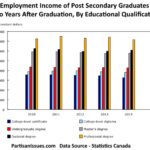
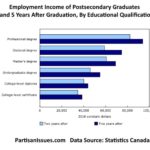
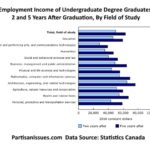
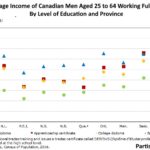
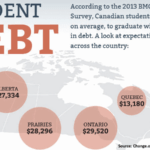

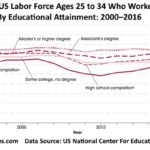
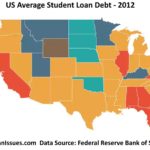
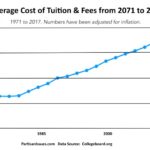



0 Comments